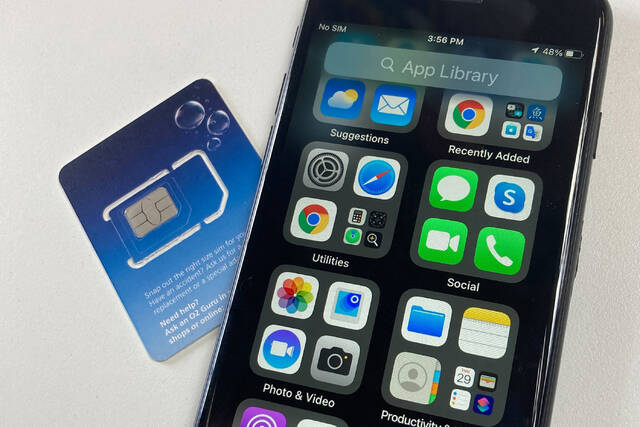The Urban League of Greater Pittsburgh has condemned racist threats targeting Black Americans. Across social media, many people have reported receiving text messages with derogatory language referencing slavery and picking cotton directed toward Black Americans.
In a statement, the Urban League of Greater Pittsburgh expressed their great disappointment in messages and “the circulation of racist texts threatening to enslave Black Americans.”
People receiving these messages are encouraged to report them to the Federal Trade Commission by texting 7726.
“This is obviously disturbing, and I believe that it reflects the current sentiment that’s come alive in this political environment,” said Carlos T. Carter, president and CEO of the Urban League of Greater Pittsburgh.
Carter noted that these sentiments are nothing new. They have always been present, but people now feel licensed to express them, he said.
“Statements from the now-president-elect and others have emboldened people,” he said. “These messages are threatening, with some saying that you will be a slave and threatening to come pick you up. It’s shameful and unacceptable for anyone to be threatened like that. America is supposed to be the land of the free, and we need to ensure that people are free from harassment.”
Jennifer Price, a special education attorney and former prosecutor in Allegheny County, said that her sister received one of these messages.
“While there was no direct threat, it was nonetheless offensive, telling people to go to the nearest plantation,” Price said. “This is why some people feel politics should ruin a relationship or friendship. This election felt so personal.”
Price noted that the messages reflect a moral and values divide highlighted by this election.
Even if there is no explicit threat, Price and other Black attorneys agree it should be reported to local police.
“You never know where it could lead and the mindset of the person who sent it,” she said.
The FBI is investigating the anonymous texts sent to Black Americans in several states, including Pennsylvania.
The Pennsylvania Human Relations Commission (PHRC) also strongly condemned the messages, particularly regarding Black students receiving them.
“The PHRC strongly condemns any type of hateful messages or acts of intimidation,” said PHRC executive director Chad Dion Lassiter, MSW, in a statement. “Hate should never be tolerated. It is imperative that all Pennsylvania school administrators understand the harm these texts may cause to students’ mental and physical health and take appropriate action. Parents and schools should contact law enforcement and report these incidents,” he stated.
“This is incredibly disheartening. It is abhorrent,” said Jessyca McCarl, a family law attorney in Pittsburgh. “This makes me question where our values stand as a society.”
What makes these text messages so concerning for many is the fear they are instilling in the Black community. McCarl hopes this is not a sign of what’s to come. She also expressed concern about potential voter intimidation and efforts to dissuade people from voting in the future.
“I hope this passes in a few days and that we don’t see this continue, and that people who hear about this don’t jump on the bandwagon,” she said.
Amanda Green Hawkins, a union attorney and a former Allegheny County Council member, echoed concerns about voter intimidation.
“This is devastating, especially given that it’s 2024. Voting is the great equalizer, everyone’s equal at that one time, if not any other,” Green Hawkins said. “To have that message sent particularly to Black people says that you are not equal, and your vote and voice don’t count. It places you in society as free slave labor … That is devastating; it is anti-democracy.”








